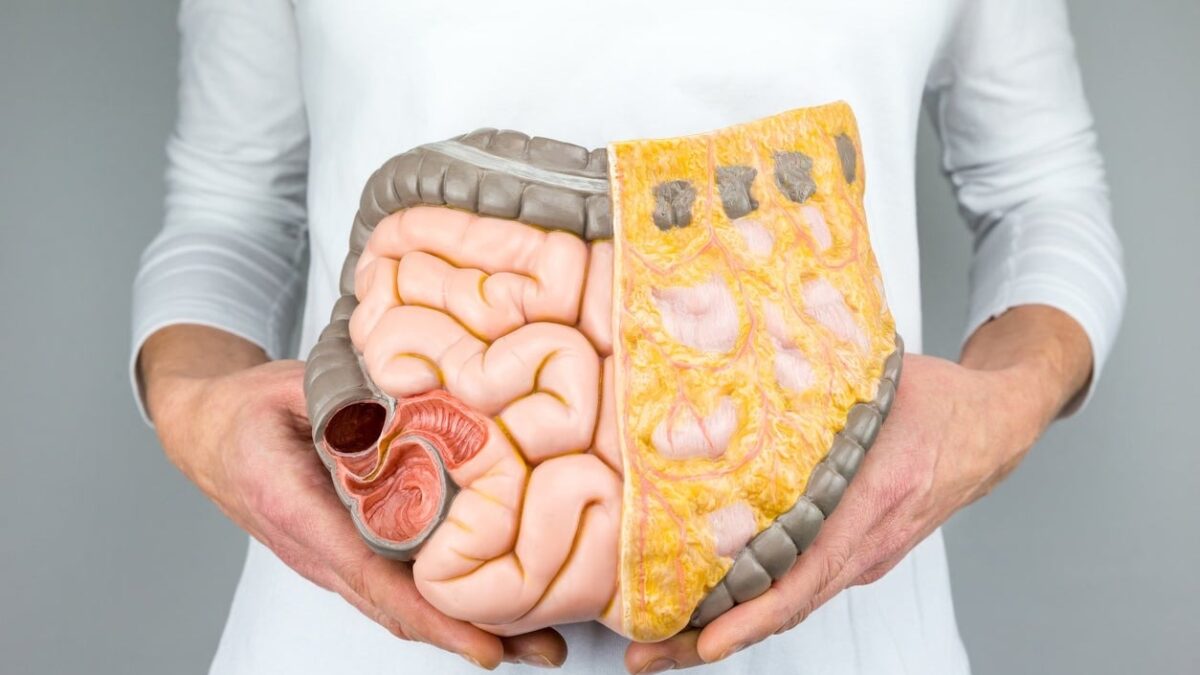
What does the Moon do in menstrual cycles? A study points to an occasional but significant association
April 11, 2024
A diagnosis of Parkinson’s at 33: “I received a hammer blow”
April 11, 2024Having your microbiota tested in a laboratory, if you suspect that it is disrupted, and linked to an overall health disorder, is feasible. And it must be said that research in this revolutionary field is progressing very quickly. But for all that, can these personalized assessments give us an indication of our state of health, explain the symptoms we experience, and direct us toward treatment options? We asked the experts, and the answer isn’t so simple.
It’s been around ten years since microbiota, the new word for intestinal flora, became a popular term. We now know that the 50 billion microorganisms that naturally colonize our intestines, whether bacteria, viruses, fungi, etc., are essential for maintaining good health. But when its natural balance is disrupted, the microbiota can trigger an inflammatory reaction, causing numerous disorders, sometimes serious, whether locally in the digestive system, with diseases such as Crohn’s, or more globally. We know, for example, that it can be linked to a situation of persistent obesity, or to an immune deficiency. And then, several studies have shown it: the bacteria which swarm in our second brain can have an impact on the first, and find themselves involved in neurological disorders, such as Parkinson’s or Alzheimer’s, or even disrupt our emotions, and nourish anxiety, depression, even bipolar disorder.
The microbiota test, a miraculous tool, or good to throw away?
From this experimental research, personalized microbiota tests, developed by private laboratories (Cerballiance, Synlab, Eurofins Biomnis, etc.) have emerged, to respond to demand and to a growing curiosity of individuals. Like when personalized DNA tests were launched on the market a few years ago, promising to tell us whether we had a rare gene linked to cancer or that we came from the Vikings, many took the plunge “in-depth assessment” of the microbiota-only by these companies, highlighted by multiple articles “I tested for you” published in the press.
After all, it would be tempting, for people suffering from recurring digestive problems, allergies, chronic fatigue, medical wandering, or simply hypochondriac tendencies, to send a small sample of their stool to a laboratory, shedding a few hundred euros, to check if everything is going well with their microbiota. These reports promise Indeed “identification of different microorganisms” who composes it, so “to distinguish between good and bad flora” and sometimes even, provide personalized interpretations and advice. Except that there is a reason why these tests are neither reimbursed nor officially authorized in France for diagnostic purposes, according to several experts we interviewed. There are even several.
“Alarmist”, “without scientific basis” analyzes
First, they don’t say the same thing. “The analyzes offered by these companies to their clients are not standardized warns Joel Dore researcher in intestinal microbial ecology at Inrae, and scientific director of the MetaGenoPolis microbiome analysis center. “We have already sent a sample from the same individual to six different laboratories, and we can clearly see that what comes out are different results and readings,” he reports. To analyze the microbiota, we use a genetic sequencing technique, very efficient but also very sensitive to bias which could distort the results, whether at the time of sample collection, DNA extraction, gene amplification, etc. “Today it is not mastered enough. And when these companies venture into interpretations, it gives something very daring compared to what we can allow ourselves to say scientifically today”, adds the specialist.
An observation also made by the teacher-researcher in microbiology Maxime Pichon who works at the CHU and the University of Poitiers, and who co-signed a column in The world which warns against these tests. “These patients, who contact me with their analysis, find themselves having a 60-page list of bacteria with complex, almost abstruse names which either leave them without indications of what is normal or not, or who find themselves, when they probably only have a psychological attack, with all of their parameters which are considered abnormal, and an alarmist analysis which gives them says it’s a disaster, without objective elements to justify it and with recommendations that are clearly hazardous or erroneous.” Today, in fact, the level of evidence does not allow us to say whether you are harboring a particular bacteria; you should instead eat radishes, or take a certain type of probiotics. So beware of charlatans.
The science is not yet up to par
According to these two microbiologists, nowadays, your doctor cannot do anything with these analyzes. Not only because they are not always reliable, and they are not trained to decipher them, but because science does not have the necessary evidence to interpret them and extract useful information to carry out a diagnosis. “The imbalance of the microbiota observed in an individual cannot be extrapolated to others” rightly affirmed the forum of the French Society of Microbiology.
So, with this complete picture of your microbiota, even specialists are unable to tell you if you have such pathology in relation to the presence of such bacteria. Because despite tons of research on the subject, “the results obtained on a general population cannot be extrapolated to the individual scale”, explains Doctor Maxime Pichon. In these studies, on a particular population, “we see changes in the microbiota which are associated with a certain state of poor health (for example, Parkinson’s disease, editor’s note.) but we cannot say to a healthy subject: ‘if we find this microbe there, then your state of health can be explained’, it’s not black or white”.
Soon, a microbiota check-up like taking a blood test?
But nothing says that this will always be the case in 5 years. According to Joël Doré, we could well move, in the near future, towards an analysis not exhaustive of the microbiota, but towards a report that would only focus on a useful aspect of the latter, depending on the patient, and carried out in a uniform manner by medical or hospital analysis laboratories. The main parameter to monitor is the diversity of the intestinal flora which spreads between 200,000 and a million different genes per individual. “We can imagine a line on the analysis sheet, as for cholesterol, who would talk about this diversity of the microbiota. We could tell the doctor if a particular patient is in the green zone at the level of a global or French benchmark, in the gray area where we don’t really know, or in the Red zone.”
What is a healthy microbiota?
So, science does not yet know how to define what a healthy microbiota is, but it can already tell you if you have a rather healthy microbiota. rich, or rather poor. And we know that A poor microbiota is rather associated with poor health. If you are in this situation, “this means that we really have to consider the microbiota as a potential player in the disease take it into account in the care process, and ask the question of how to make it more diverse”, explains Joël Doré.
Beyond the question of wealth, certain types of microbiota seem particularly penalize patients who wear them, presenting risks associated with the development of chronic, inflammatory, or metabolic diseases (diabetes, etc.). Studies have shown that there are 3 or 4 distinct branches, with a very different dominant bacterial population. But again, the incredible heterogeneity cases, the lack of studies on larger cohorts, and therefore the absence of a real reference framework, makes things more complicated. “We realize that there is a lot of variability between someone who lives in the countryside, in the city, or in France or China. We do not know to what extent all this affects the microbiota, and if there is a risk of overinterpretation”, adds Maxime Pichon.
The microbiota already integrated into cancer treatment
If the tests cannot provide much guidance to the individual who will do it in their own corner, health professionals have already started to organize themselves to integrate the microbiota into their diagnosis. “The Gustave Roussy Institute, the first cancer center in Europe, is in the process of setting up a systematic collection of stools from patients who arrive at the hospital, with the aim of analyzing their microbiota, and integrate it into care practice” informs us Joël Doré, who reminds us that studies have made the link between the richness of the microbiota, or the presence in it of certain bacterial species, and a good response to chemotherapy.
Defining the French microbiome
To make knowledge about the microbiota applicable to as many people as possible, international projects are being set up to characterize as many microbiomes as possible, and thus provide a more important photograph, or reference. In France, “The French Gut” took on the challenge of analyzing the intestinal microbiota of 100,000 French people by 2027. Globally, the goal is to reach 1 million: a solid basis for studying biomarkers chronic diseases of the century, which are obesity, diabetes, cancer, inflammatory bowel diseases, and even neurodegenerative diseases. And why not detect them in future tests, standardized, and sent directly to the attending physician on his computer. In the meantime, when it comes to how to get your intestinal microbiota back in working order, nutritional advice is always good to take: eat fiber, in quantity and also in diversity, and not too much protein!
You may also be interested in:
⋙ Transit disorder, difficult digestion, stomach ache: the role of stress in the imbalance of the microbiota
⋙ The composition of the microbiota can predict whether a child will be obese
⋙ Fecal transplant, a solution against certain microbiota infections

